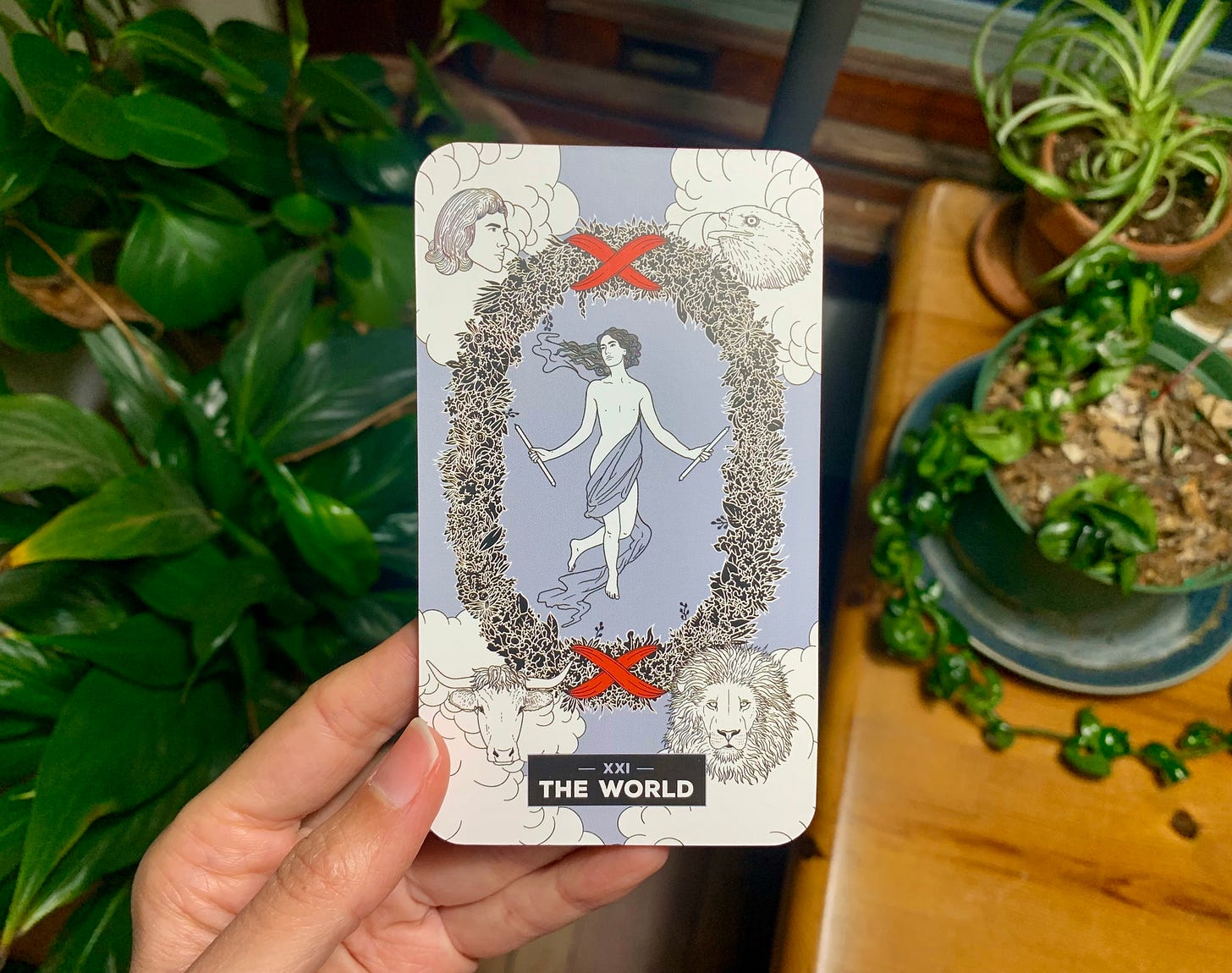
Hi, hitting the heart button is a great & free way to support these Offerings. <3
Last summer in the thick of the ending of worlds, I read Facing Apocalypse by theologian Catherine Keller. In it, she notes that the meaning of the Greek word apokalypsis means the “removal of the veil.” Thus apocalypse is “disclosure, not closure. Not a closing down of the world, but an opening up.”
It was a useful idea for me then, and still is. Not only had something big in my life been dis-closed, but the slippery nature of “closure” was revealing itself more and more. At a certain point I gave up on closure and made my way toward its close cousin, forgiveness.
Theologian Matthew Ichihashi Potts has called forgiveness more akin to “mourning than miracle.1” Forgiveness is not about feelings. But if it were, it might be more closely related to lament than relief. In accepting “that what has been lost cannot be restored,” forgiveness “aims to live in and with the irrevocability of wrong.”
For Potts, forgiveness is “paradoxically forward facing” in that it both “addresses the past so unflinchingly” and “sets itself honestly toward whatever future can actually come to be in the wake of that past.” Rather than ease or peace or closure, the promise of forgiveness may be that it makes livable what can’t be undone.
Refusing the need to reconcile what is too late to change or take back, forgiveness makes way for “the only possible future” that can come of it. And though it’s often taken up with some amount of hesitation, forgiveness always entails “a stance of openness toward the future,” from which a “refusal to forget its wrong imagines what a wronged life lived well might be.”
I’ve been following the student encampments and other actions in solidarity with Palestine with a great deal of respect and interest. College students are enacting something that seems to resemble Potts’ notion of forgiveness as mourning, which is struggling “with and through and in a loss we cannot redeem” and showing us how to live in the wake of that loss.
Despite climates of repression and denial students are taking it upon themselves to look squarely and unflinchingly at the past and what’s happened, to make worlds with their sorrow in tow, and to refuse indifference no matter how bad things are. These are tasks that grievers know something about.
On Thursday I saw a photo from the encampment at University of Toronto of a canvas with artist Paul Klee’s Angelus Novus painted on it with a quote from poet Aimé Césaire which said, “The only thing in the world worth beginning: The end of the world of course.”



